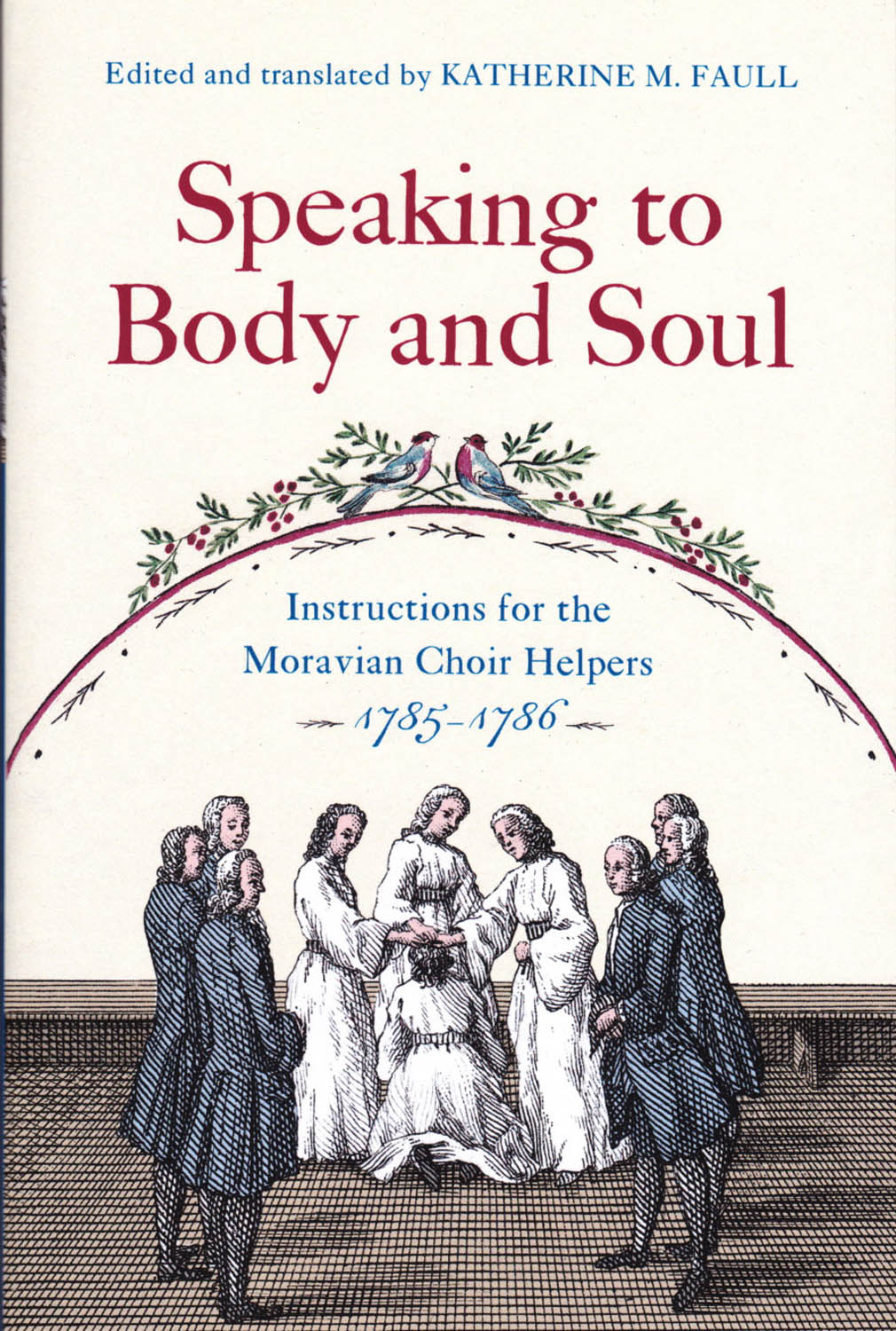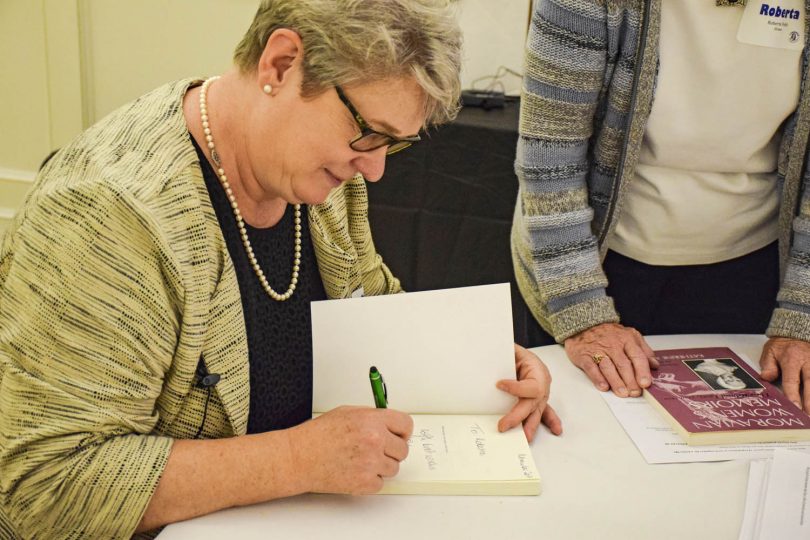Speaking to Body and Soul: Instructions for the Moravian Choir Helpers, 1785-1786
Edited and translated by Katherine M. Faull
2016, Penn State Press
What’s missing? This is a big question our church has been engaged with as we seek to define our mission, structure our organization, reach out in mission and invigorate the laity. As we consider declining numbers and closing churches we ask ourselves: “What’s the problem? Why aren’t we growing the church the way our ancestors did in the 18th century?”
With Speaking to Body and Soul, Katherine Faull provides a big answer to these questions with her straightforward explanation of the 18th-century choir system and the translation of the instructions used to guide the anointed laity who implemented this high level of spiritual care among church members.
Comparing the 18th-century church with our modern church is, in many ways, like comparing apples and oranges. One reason is that the structure and the way our church “operates” is completely different today. What’s missing is a functional choir system in which trained laity personally ministered to each member of the congregation during the 18th century, and through this intense spiritual care, essentially kept each member on track and “on fire” as they grew the church and spread their message across six continents.
Over the past 25 years Katherine Faull has brought Moravian history to light with the translation and analysis of many different archival records pertaining to Moravian women, Native Americans, and spiritual life. Speaking to Body and Soul may be her most important work yet in terms of practical usefulness to clergy and average church members alike, because it shows how each member was spoken to and effectively cared for in the past. It is an answer to keeping our laity engaged, maintaining spiritual energy and driving growth. And it starts with the complex challenge of keeping each member, in each stage of life, intensely focused on God.

In the book’s introduction, Faull concisely explains the Moravian church’s evolution in the 18th century. Using historical context, she shows how church theology shaped particular church practices, such as the choir system. What started as a grassroots effort of a few church members desiring to live and worship together soon morphed into an overarching system of spiritual care and church organization. In the following chapters, Faull translates the instructions provided to choir helpers in the 18th century, wonderfully individualized for each gender and stage of life: single sisters, single brothers, married persons and widows.
While considering both the spiritual and bodily concerns of each group the Instructions reveal just how well Moravians then understood human needs and the everyday “stuff” that impedes our walk with Christ. Faull’s translation retains the warm, simple nuance of the original text. What is striking in reading the instructions for each choir is the tone of respect and sensitivity delivered to each group in each station of life. From dealing with teenage angst to troubles between married couples to the loneliness of widowhood – the Instructions are remarkable for their modern, positive tone.
Individual spiritual formation should be our modern church’s number one priority as we define future goals. The acts of speaking to someone else about our spiritual lives and thoroughly examining our souls on a regular basis are almost completely lacking in the modern church. Faull shows in brilliant detail just how necessary this was to Moravians of old. They understood absolutely that the spiritual health of members perpetuated the health of the whole church. They understood that one’s relationship to Christ was the bedrock of church theology, that all else was sinking sand, and therefore placed utmost importance on the care of souls. This book is a true blessing to our modern church as we seek to restore our bedrock.
Lanie Yaswinski was assistant archivist with the Northern Province Moravian Archives. Speaking to Body and Soul is available at store.www.moravian.org.






